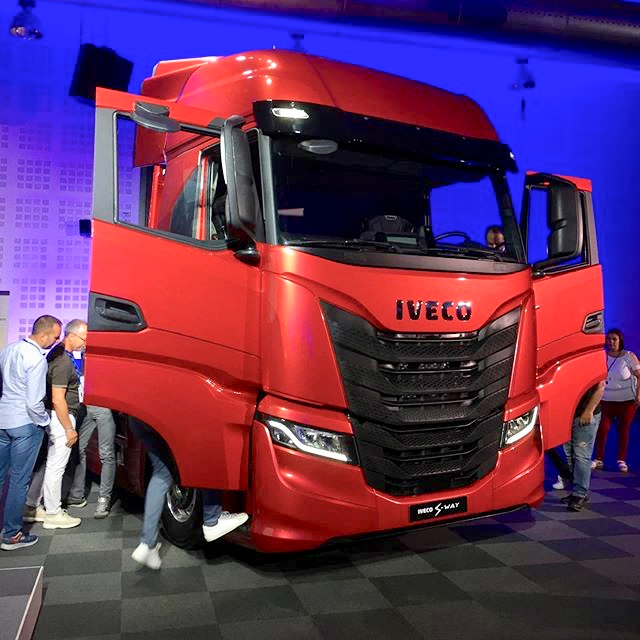- Iveco Group N.V. is a global commercial vehicle manufacturer headquartered in Turin, Italy.
It sells around 150,000 vehicles annually across 160+ countries. - As of mid‑2025, Exor N.V.—the investment firm controlled by Italy’s Agnelli family—holds a 27.1% stake and 43.1% voting rights in Iveco. The company has a market capitalization of roughly €4–4.5 billion.
Tata Motors’ Interest and the Deal
In July 2025, Tata Motors reportedly approached Exor about acquiring its 27.1% stake, with the intent to launch a tender offer for all remaining shares. The deal reportedly excludes Iveco’s defence arm (IDV), which is being spun off and bid on separately and valued at up to €1.9 billion.
The acquisition is expected to be worth around US $4.5 billion (€3.9 billion)—making it Tata Group’s second-largest acquisition (after Corus) and Tata Motors’ biggest ever since Jaguar Land Rover.

Strategic Rationale
- Global expansion: Tata Motors aims to transform from an India-centric CV maker into a global player. Iveco’s strong footprint in Europe, Latin America, and other regions offers a ready-made platform.
- Technology synergy: Iveco has been developing electric, hydrogen, and advanced powertrain tech—which complements Tata’s own push into sustainability.
- Operational benefits: Tata’s cost-efficient manufacturing and global scale could help improve Iveco’s margins, while Tata gains access to advanced R&D, Europe‑based facilities, and complementary sales networks.
Risks & Regulatory Issues
- Golden Power law: Italy’s government may impose conditions or block the deal under its legislation on strategic assets. A similar attempt by China’s FAW was blocked in 2021.
- Debt and valuation: Iveco has modest margins (~5.7% EBIT), and some analysts view the acquisition as potentially straining Tata’s recently net-debt-free balance sheet.
- Integration challenges: Merging Tata’s operational style with Iveco’s European footprint and workforce could present cultural and logistical hurdles.
At a Glance
| Aspect | Details |
|---|---|
| Company | Iveco Group NV—European CV maker; sources vehicles, engines, buses |
| Ownership | Exor ‒ 27.1% stake, 43.1% voting rights |
| Deal Value | ~US $4.5 billion (excluding defence unit) |
| Exclusion | IDV (defence business) – being sold/spun off separately |
| Why It Matters | Tata gains global footprint, tech access, and market diversification |
| Key Concerns | Regulatory oversight, valuation discipline, integration dynamics |
Long-Term Implications
- Iveco could benefit from Tata’s scale and cost efficiencies, while Tata gains access to high-margin markets and advanced engineering.
- The non-inclusion of the defence unit could smooth regulatory approval, especially under Italy’s golden power scrutiny—but execution risk remains high
Latest Developments: What’s New?
On July 30, 2025, Tata Motors’ shares dropped roughly 3.7–4%, falling to ₹665–666 on the BSE after news emerged that it plans to acquire Iveco for US $4.5 billion (approx. €3.9 bn) — its single largest deal to date and the Tata Group’s second-largest acquisition (after Corus)
The Italian government, through Industry Minister Adolfo Urso, has publicly stated it is “closely monitoring” the proposed deal, expressing support for high-quality foreign capital while stressing protections for Italian jobs, technology and production. No formal invocation yet of the “golden power” law, but scrutiny is expected
🕰️ Key Background & Structure of the Deal
- On July 18, 2025, Reuters first reported that Tata Motors had approached Exor (Agnelli family’s investment firm) to explore buying its 27.1% stake (with ~43% voting rights) in Iveco Group NV. The IDV defense unit is explicitly excluded from any deal and is being prepared for independent sale or spin‑off by end‑2025, with bids valuing it up to €1.9 billion Supply Chain Brain+12Reuters+12The Economic Times+12.
- Iveco is one of the smaller European commercial vehicle makers (market cap roughly €4.2–4.5 bn, around $4.9 bn) and employs ~36,000, including ~14,000 in Italy. Core rivals in Europe include Volvo, Daimler, and Traton



